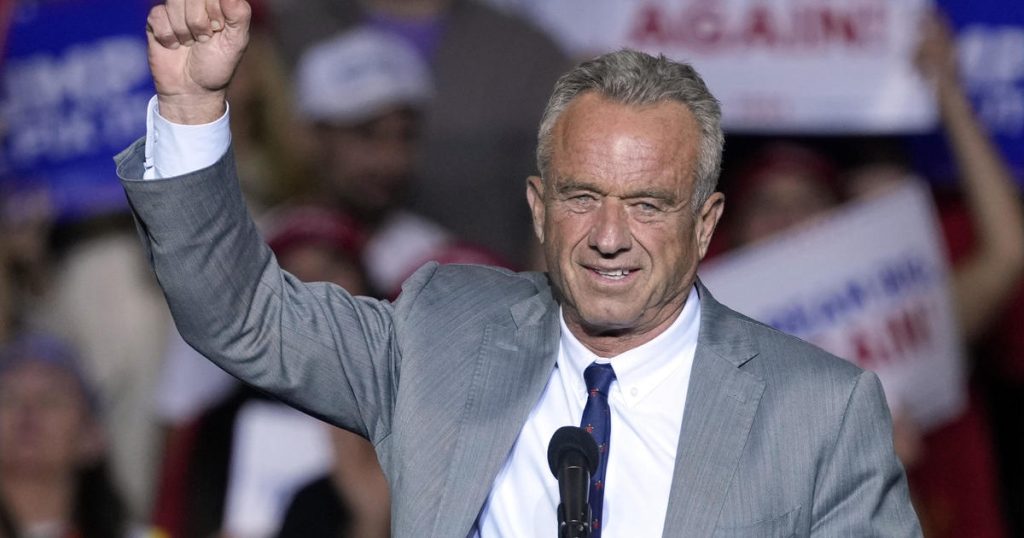President-elect Donald Trump has announced his intention to nominate Robert F. Kennedy Jr. to lead the Department of Health and Human Services. Kennedy is known for criticizing vaccines and attributing chronic diseases to the actions of large drug and food companies. Despite expected opposition to his nomination, Trump has expressed his commitment to selecting Kennedy as his health chief. Kennedy, a vaccine skeptic and former environmental lawyer, has been promised by Trump to have a significant role in addressing health, food, and medicine issues within the government.
The Department of Health and Human Services oversees several agencies, including the CDC, NIH, CMS, FDA, and the Office of Refugee Resettlement. Kennedy’s nomination has been met with criticism from some public interest groups, who view him as a threat to evidence-based solutions in public health. However, some Democrats, such as Colorado Governor Jared Polis, have expressed support for Kennedy’s nomination, particularly for his stance on vaccine mandates and his commitment to tackling high drug costs. Kennedy has also outlined his plans to overhaul various government departments to address issues such as pesticide exposure from agricultural practices.
As a co-chair of Trump’s transition team, Kennedy has been responsible for vetting potential staff for the new administration. He has made controversial statements calling for the dismissal of nutritional scientists across government agencies and has been vocal about his support for Trump’s policies on issues such as free speech, the war in Ukraine, and child health. Trump has pledged to establish investigative panels on chronic health problems and childhood diseases, as well as an independent commission on Kennedy’s uncle, President John F. Kennedy’s assassination. Kennedy comes from a prominent political family and has endorsed Trump, citing concerns about processed foods, chemicals, and obesity affecting children’s health in the U.S.
Kennedy’s nomination has sparked a debate about his qualifications and positions on public health issues. Some critics view him as an anti-vaccine advocate who poses a threat to scientific evidence-based approaches to public health. However, supporters see him as a champion for personal choice and addressing the influence of big pharma on healthcare costs. Kennedy’s role at HHS would have a significant impact on public health policy, given the department’s vast responsibilities in overseeing various health agencies and programs.
As Trump’s nominee for HHS Secretary, Kennedy’s confirmation process will likely face scrutiny from both Democrats and Republicans in the Senate. Nevertheless, with Republicans holding the majority, his confirmation may be smoother than if Democrats were in control. Kennedy’s appointment reflects Trump’s commitment to selecting unorthodox nominees who align with his agenda, even if they face criticism from traditional public health organizations and advocacy groups. The outcome of Kennedy’s nomination will have implications for the future of public health policy and the direction of healthcare in the United States under the new administration.


